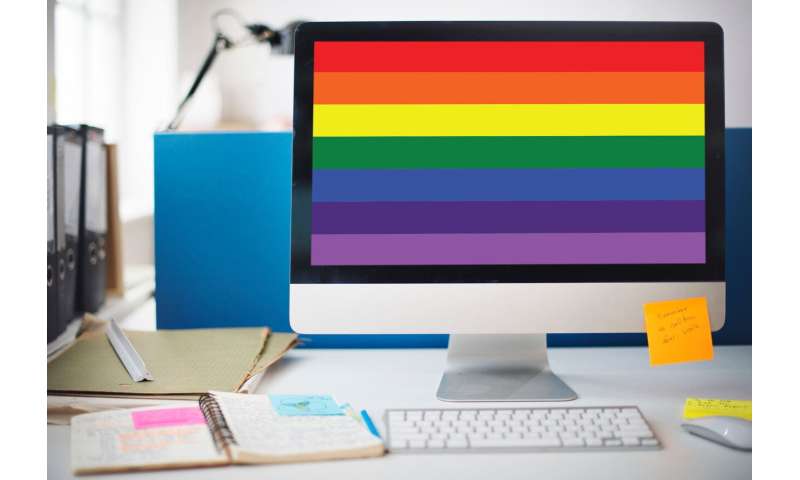
Being open about your sexual orientation in the workplace is beneficial to your overall well-being, according to new research from Rice University.
“Opening up about your sexuality at work is a very real fear for many LGBTQ+ Americans, no doubt due to the fact that individuals have been fired for coming out in the workplace,” said Eden King, an associate professor of psychological science at Rice and one of the study authors. “In fact, the U.S. Supreme Court is debating this week whether or not you can be fired for being gay. The topic is very timely and we were interested in how concealing or revealing this information can impact your health and well-being.”
“Affective Antecedents and Consequences of Revealing and Concealing a Lesbian, Gay or Bisexual Identity” will appear in an upcoming edition of the Journal of Applied Psychology. The research, which builds on previous work examining the impact of revealing stigmatized identities in the workplace, specifically focuses on lesbian, gay and bisexual individuals and how the revelation of a person’s sexuality affects their well-being.
The study included 61 lesbian, gay and bisexual participants from varied racial backgrounds who worked full-time in the Washington, D.C., region and had held their jobs for no more than 12 months.
“We focused on new employees because we figured they would have more opportunities to come out to peers than individuals who had been in the organization for a while,” King said.
The people participating in the study answered surveys that included a variety of questions evaluating their level of “outness” and their emotions, such as anxiety, anger and fatigue. Participants responded to surveys about their feelings every morning for three weeks. In addition, they filled out similar surveys every time they made decisions about whether to reveal or conceal their sexual orientation at work.
The researchers found new employees who concealed their sexual orientation felt increased levels of anxiety, anger and fatigue and decreased levels of vigor and self-assurance.
“It is important that lesbian, gay and bisexual people reported the immediate emotional effects of concealing their identity,” King said. “If these negative feelings build up over time, it could have significant implications for lesbian, gay and bisexual workers’ mental health.”
Jonathan Mohr from the University of Maryland was the study’s lead author. Co-authors include Hannah Markell of George Mason University, Kristen Jones of the University of Memphis, Chad Peddie of ECS Federal and Matthew Kendra of Stanford University.
Source: Read Full Article